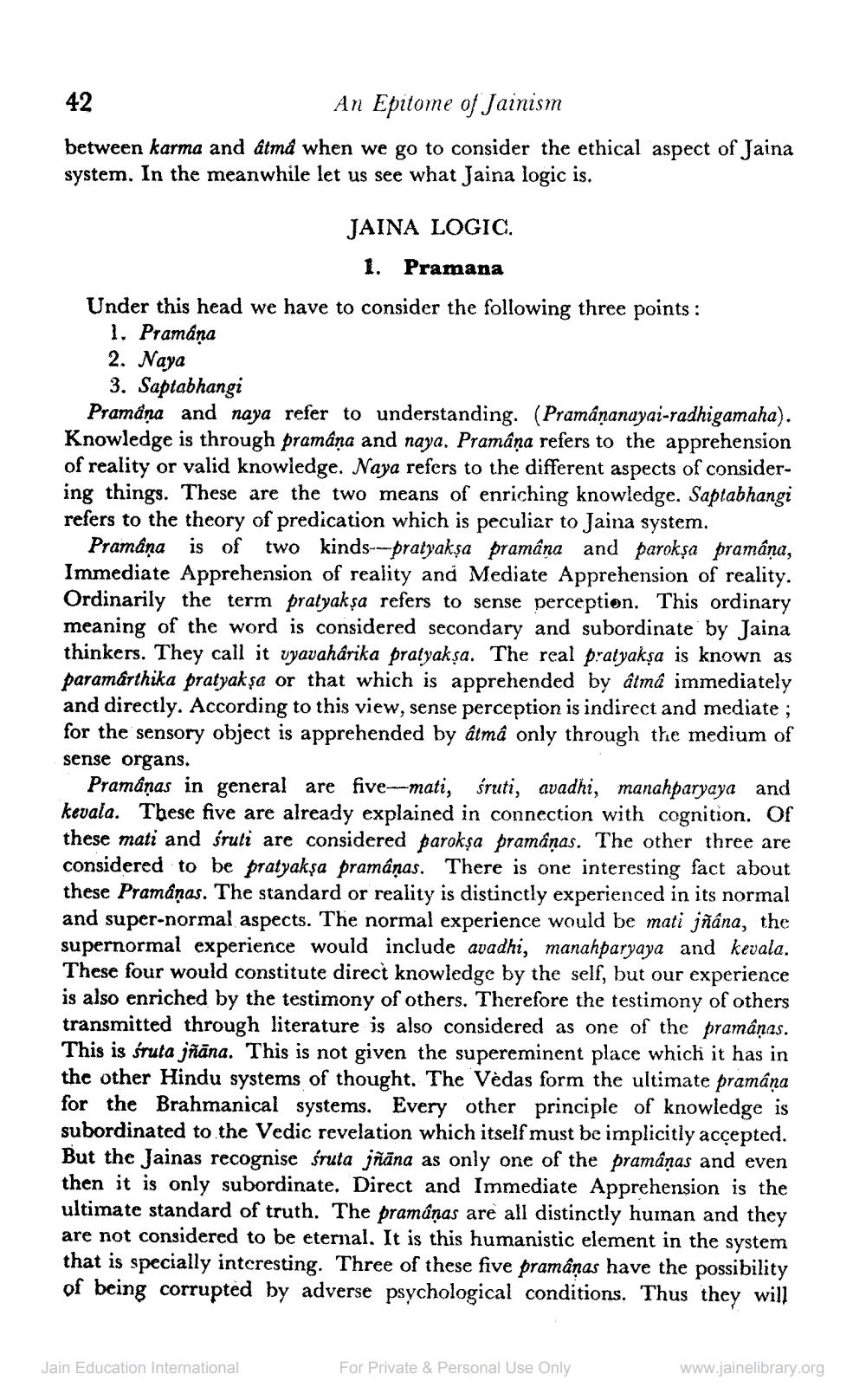________________
42
An Epitome of Jainism between karma and åtmå when we go to consider the ethical aspect of Jaina system. In the meanwhile let us see what Jaina logic is.
JAINA LOGIC.
1. Pramana Under this head we have to consider the following three points :
I. Pramana 2. Naya
3. Saptabhangi Pramana and naya refer to understanding. (Pramânanayai-radhigamaha). Knowledge is through pramâna and naya. Pramâņa refers to the apprehension of reality or valid knowledge. Naya refers to the different aspects of considering things. These are the two means of enriching knowledge. Saptabhangi refers to the theory of predication which is peculiar to Jaina system.
Pramana is of two kinds--pratyakṣa pramâna and parokșa pramâna, Immediate Apprehension of reality and Mediate Apprehension of reality Ordinarily the term pratyakșa refers to sense perception. This ordin meaning of the word is considered secondary and subordinate by Jaina thinkers. They call it vyavahârika pratyaksa. The real pratyakșa is known as paramârthika pratyakṣa or that which is apprehended by atmâ immediately and directly. According to this view, sense perception is indirect and mediate ; for the sensory object is apprehended by atmâ only through the medium of sense organs.
Pramânas in general are five--mati, śruti, avadhi, manahparyaya and kevala. These five are already explained in connection with cognition. Of these mati and śruti are considered parokşa pramâņas. The other three are considered to be pratyaksa pramâņas. There is one interesting fact about these Pramanas. The standard or reality is distinctly experienced in its normal and super-normal aspects. The normal experience would be mati supernormal experience would include avadhi, manahparyaya and kevala. These four would constitute direct knowledge by the self, but our experience is also enriched by the testimony of others. Therefore the testimony of others transmitted through literature is also considered as one of the pramâņas. This is śruta jñāna. This is not given the supereminent place which it has in the other Hindu systems of thought. The Vedas form the ultimate pramâna for the Brahmanical systems. Every other principle of knowledge is subordinated to the Vedic revelation which itself must be implicitly accepted. But the Jainas recognise śruta jñāna as only one of the pramânas and even then it is only subordinate. Direct and Immediate Apprehension is the ultimate standard of truth. The pramanas are all distinctly human and they are not considered to be eternal. It is this humanistic element in the system that is specially interesting. Three of these five pramâņas have the possibility of being corrupted by adverse psychological conditions. Thus they will
Jain Education International
For Private & Personal Use Only
www.jainelibrary.org




